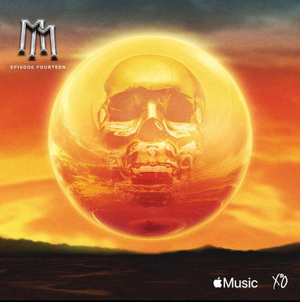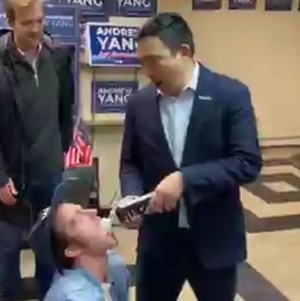On October 3rd, the Supreme Court of the United States will begin hearing the first oral arguments of the new term (which always begins in October).
These are the cases whose oral arguments have been set on the Court's calendar so far:
(ALREADY HEARD)

(STILL TO COME)


SCOTUSblog has good summaries of the cases the Court is set to hear this year at scotusblog.com/case-files/terms/ot2022
National Pork Producers Council v. Ross seems interesting
 seems like the ruling could have a lot of inadvertent runoff effects
seems like the ruling could have a lot of inadvertent runoff effectsAndy Warhol Foundation for the Visual Arts v. Goldsmith seems like it should be talked about on here more, even though it's unrelated to implication of it would seem to determine the future of sampling in music due to adjacency to the subject
also those affirmative action cases
 surprised it always goes back to affirmative action and not title ix tho (afaik)
surprised it always goes back to affirmative action and not title ix tho (afaik) krishna bound
krishna boundNational Pork Producers Council v. Ross seems interesting
 seems like the ruling could have a lot of inadvertent runoff effects
seems like the ruling could have a lot of inadvertent runoff effectsAndy Warhol Foundation for the Visual Arts v. Goldsmith seems like it should be talked about on here more, even though it's unrelated to implication of it would seem to determine the future of sampling in music due to adjacency to the subject
also those affirmative action cases
 surprised it always goes back to affirmative action and not title ix tho (afaik)
surprised it always goes back to affirmative action and not title ix tho (afaik)i guess sampling (at least for rap) already errs on the side of the label wanting the artist to get a license
but tbh under Campbell v. Acuff-Rose Music, Inc. it always seemed patently ridiculous how the 2 Live Crew version of "Pretty Woman" is allowed but, like, you have to cut a check if you chop a sample up into unrecognizability
I didn't think the oral arguments in Milligan went as badly for the future of §2 of the Voting Rights Act as it could have
Alabama will definitely win, but there seemed to be at least some desire by Alito and Barrett to figure out a way to erode the value of Gingles (and thus §2) without formally overturning the case, as Roberts generally prefers to do
some bs about being "reasonably configured"
Ofc I wouldn't be surprised at this point though if they just totally threw out Gingles and gutted the VRA
- https://twitter.com/scotusblog/status/1583204256508973057
 HURRYUPSONIC
HURRYUPSONICEven the ed can do good things !
The Supreme Court’s December argument session will feature two of the highest-profile cases of the 2022-23 term: a free-speech claim by a website designer who opposes same-sex marriage and a case involving the power of state legislatures to set rules for federal elections. That news came with the release of the court’s December argument calendar on Tuesday.
The justices will hear argument in 303 Creative v. Elenis, the case brought by Colorado website designer Lorie Smith, on Dec. 5. Smith wants to expand her business to create custom wedding websites, but she opposes same-sex marriage on religious grounds and wants to put a notice on her own website to explain that – a message that would violate Colorado law, which bars businesses that are open to the public from discriminating against LGBTQ people or announcing an intent to do so.
Two days later, the justices will hear oral argument in Moore v. Harper, a dispute arising from the North Carolina legislature’s efforts to draw a new congressional map in response to the 2020 census. The Republican legislators defending the plan argue that a ruling by the North Carolina Supreme Court invalidating the legislature’s map and ordering the state to draw a new one violates the “independent state legislature” theory – the idea that, under the Constitution, only the legislature has the power to regulate federal elections, without interference from state courts.
303 Creative and Moore v. Harper are two of the nine cases in the December argument session, which begins on Nov. 28. The justices will also hear oral arguments in two cases involving federal fraud and bribery statutes, a challenge to the Biden administration’s immigration enforcement decisions, and the government’s authority to dismiss a lawsuit brought under the False Claims Act.
Here is the full list of cases scheduled for argument in the December argument session:
Percoco v. United States (Nov. 28): Whether a private citizen who can influence government decision-making owes a duty to the public, so that he can be convicted of bribery.
Ciminelli v. United States (Nov. 28): Whether a defendant can be convicted under the federal wire-fraud statute based on a “right to control” theory – that is, failing to share information that is valuable in making business decisions.
United States v. Texas (Nov. 29): A challenge to the Biden administration’s policy of prioritizing certain groups of unauthorized immigrants for arrest and detention.
Wilkins v. United States (Nov. 30): Whether the 12-year statute of limitations to bring a lawsuit under the Quiet Title Act is jurisdictional – that is, it goes to the court’s power to hear the case and cannot be waived.
303 Creative v. Elenis (Dec. 5): Whether applying Colorado’s public-accommodation law to require an artist to speak or stay silent violates the Constitution’s free speech clause.
MOAC Mall Holdings v. Transform Holdco (Dec. 5): Whether a provision of federal bankruptcy law limits the power of the courts of appeals over an order approving the sale of a debtor’s assets, or whether the law instead simply limits the remedies available on appeal from such an order.
United States ex rel. Polansky v. Executive Health Services (Dec. 6): Whether, when an individual brings a lawsuit on behalf of the government alleging fraud on the United States, the government has the power to dismiss the lawsuit after initially declining to take over the case.
Bartenwerfer v. Buckley (Dec. 6): Whether a bankruptcy debtor can be held liable for another person’s fraud, which cannot be discharged in bankruptcy, when she was not aware of the fraud.
Moore v. Harper (Dec. 7): Whether a state supreme court’s order invalidating a state’s congressional map and ordering the state to draw a new one violates the Constitution’s elections clause.
 gabapentin
gabapentinhttps://www.scotusblog.com/2022/10/december-argument-session-will-feature-divisive-cases-on-election-law-first-amendment/
The Supreme Court’s December argument session will feature two of the highest-profile cases of the 2022-23 term: a free-speech claim by a website designer who opposes same-sex marriage and a case involving the power of state legislatures to set rules for federal elections. That news came with the release of the court’s December argument calendar on Tuesday.
The justices will hear argument in 303 Creative v. Elenis, the case brought by Colorado website designer Lorie Smith, on Dec. 5. Smith wants to expand her business to create custom wedding websites, but she opposes same-sex marriage on religious grounds and wants to put a notice on her own website to explain that – a message that would violate Colorado law, which bars businesses that are open to the public from discriminating against LGBTQ people or announcing an intent to do so.
Two days later, the justices will hear oral argument in Moore v. Harper, a dispute arising from the North Carolina legislature’s efforts to draw a new congressional map in response to the 2020 census. The Republican legislators defending the plan argue that a ruling by the North Carolina Supreme Court invalidating the legislature’s map and ordering the state to draw a new one violates the “independent state legislature” theory – the idea that, under the Constitution, only the legislature has the power to regulate federal elections, without interference from state courts.
303 Creative and Moore v. Harper are two of the nine cases in the December argument session, which begins on Nov. 28. The justices will also hear oral arguments in two cases involving federal fraud and bribery statutes, a challenge to the Biden administration’s immigration enforcement decisions, and the government’s authority to dismiss a lawsuit brought under the False Claims Act.
Here is the full list of cases scheduled for argument in the December argument session:
Percoco v. United States (Nov. 28): Whether a private citizen who can influence government decision-making owes a duty to the public, so that he can be convicted of bribery.
Ciminelli v. United States (Nov. 28): Whether a defendant can be convicted under the federal wire-fraud statute based on a “right to control” theory – that is, failing to share information that is valuable in making business decisions.
United States v. Texas (Nov. 29): A challenge to the Biden administration’s policy of prioritizing certain groups of unauthorized immigrants for arrest and detention.
Wilkins v. United States (Nov. 30): Whether the 12-year statute of limitations to bring a lawsuit under the Quiet Title Act is jurisdictional – that is, it goes to the court’s power to hear the case and cannot be waived.
303 Creative v. Elenis (Dec. 5): Whether applying Colorado’s public-accommodation law to require an artist to speak or stay silent violates the Constitution’s free speech clause.
MOAC Mall Holdings v. Transform Holdco (Dec. 5): Whether a provision of federal bankruptcy law limits the power of the courts of appeals over an order approving the sale of a debtor’s assets, or whether the law instead simply limits the remedies available on appeal from such an order.
United States ex rel. Polansky v. Executive Health Services (Dec. 6): Whether, when an individual brings a lawsuit on behalf of the government alleging fraud on the United States, the government has the power to dismiss the lawsuit after initially declining to take over the case.
Bartenwerfer v. Buckley (Dec. 6): Whether a bankruptcy debtor can be held liable for another person’s fraud, which cannot be discharged in bankruptcy, when she was not aware of the fraud.
Moore v. Harper (Dec. 7): Whether a state supreme court’s order invalidating a state’s congressional map and ordering the state to draw a new one violates the Constitution’s elections clause.
that's nuts i never even heard of the percoco & ciminelli cases despite being from NY
 that said the grounds of the charges seem kinda ridiculous from an observational standpoint, it seems like a very loose definition of fraud. that's the issue with corruption cases, preventing it in theory is a lot more straightforward than regulating it in action
that said the grounds of the charges seem kinda ridiculous from an observational standpoint, it seems like a very loose definition of fraud. that's the issue with corruption cases, preventing it in theory is a lot more straightforward than regulating it in actionAlito’s questioning on Affirmative Action
 yeah it’s over we can pack that one up
yeah it’s over we can pack that one up krishna bound
krishna boundAlito’s questioning on Affirmative Action
 yeah it’s over we can pack that one up
yeah it’s over we can pack that one upi think its somewhat more likely that there is a sentiment amongst at least a couple of the conservatives to rule against the schools on a narrower ground than by totally overruling Grutter than there was for Roe and Dobbs
they could certainly argue that Harvard, given the extent of the record against them in the case, fails to meet the Grutter standard or even the level of compliance with strict scrutiny that UT Austin reached in Fisher
but the thing that makes it most different i think is that while Roberts is less laser-focused on abortion than the later FedSoc anti-Souters, who were picked with willingness to overturn Roe the overriding concern, he's more right-wing on race than, say, Barrett or Kavanaugh (peep his history in Reagan's DOJ)
i think there's five votes to overturn
 krishna bound
krishna boundthat's nuts i never even heard of the percoco & ciminelli cases despite being from NY
 that said the grounds of the charges seem kinda ridiculous from an observational standpoint, it seems like a very loose definition of fraud. that's the issue with corruption cases, preventing it in theory is a lot more straightforward than regulating it in action
that said the grounds of the charges seem kinda ridiculous from an observational standpoint, it seems like a very loose definition of fraud. that's the issue with corruption cases, preventing it in theory is a lot more straightforward than regulating it in actionyea i wont pretend to know much abt that area of the lawl (property rights, things that grownups who make money are focused on) but i agree with you that its a very nebulous approach to anti-corruption that ironically i think could certainly be argued as, well, susceptible to the very same
 gabapentin
gabapentini think its somewhat more likely that there is a sentiment amongst at least a couple of the conservatives to rule against the schools on a narrower ground than by totally overruling Grutter than there was for Roe and Dobbs
they could certainly argue that Harvard, given the extent of the record against them in the case, fails to meet the Grutter standard or even the level of compliance with strict scrutiny that UT Austin reached in Fisher
but the thing that makes it most different i think is that while Roberts is less laser-focused on abortion than the later FedSoc anti-Souters, who were picked with willingness to overturn Roe the overriding concern, he's more right-wing on race than, say, Barrett or Kavanaugh (peep his history in Reagan's DOJ)
i think there's five votes to overturn
I have a feeling conservative justices are going to keep the ruling narrow to just schools in order to avoid a greater knock-on effect that would lead to a supreme court case re-hearing over the CRA, something I don't think any justices really want to be associated with in a 100 mile radius.It's coming eventually though regardless of how much they try to postpone it.
 gabapentin
gabapentinyea i wont pretend to know much abt that area of the lawl (property rights, things that grownups who make money are focused on) but i agree with you that its a very nebulous approach to anti-corruption that ironically i think could certainly be argued as, well, susceptible to the very same
in theory i understand why the parties were indicted over the situation but its application as a precedent is kind of ridiculous. the idea that if someone is given oversight of state grant/project money that they then need to purposefully avoid those they would otherwise work with doesn't even make logical sense. It presumes the state already knows better for whom to grant said money, which okay, that MIGHT be the case, but if so why are they hiring overseers for picking beneficiaries anyway? If the state doesn't know better than the overseer, is it just assumed corruption that the overseer has a relationship with the beneficiary? If the overseer cannot have a relationship with the beneficiary, then is the assumption that the money must not go to the most qualified party (who could be the beneficiary) but rather the qualification is not being qualified in and of itself but rather being a stranger?
 gabapentin
gabapentini think its somewhat more likely that there is a sentiment amongst at least a couple of the conservatives to rule against the schools on a narrower ground than by totally overruling Grutter than there was for Roe and Dobbs
they could certainly argue that Harvard, given the extent of the record against them in the case, fails to meet the Grutter standard or even the level of compliance with strict scrutiny that UT Austin reached in Fisher
but the thing that makes it most different i think is that while Roberts is less laser-focused on abortion than the later FedSoc anti-Souters, who were picked with willingness to overturn Roe the overriding concern, he's more right-wing on race than, say, Barrett or Kavanaugh (peep his history in Reagan's DOJ)
i think there's five votes to overturn
city-journal.org/grutter-on-the-chopping-block#.Y2U5UNACYUU.twitter
city journal seems to think Grutter is gone
 krishna bound
krishna boundhttps://www.city-journal.org/grutter-on-the-chopping-block#.Y2U5UNACYUU.twitter
city journal seems to think Grutter is gone
I thought he made a good case for the most likely outcome, this article by Gail Heriot that Charles Fain Lehman linked to in another City Journal article I thought was a good explication of other non SCOTUS changed that could happen re: “racial preferences”
this thread was a huge failure on my part but, we got fifteen cases and probably four decision days left, lets see if I can't finish strong
politico.com/news/2023/06/20/supreme-court-polarization-expectations-00102663
What happened to the 6-3 Supreme Court? The next 2 weeks will tell us.
By JAMES ROMOSER
06/20/2023 11:35 AM EDT Updated: 06/20/2023 01:10 PM EDT
The Supreme Court is entering the home stretch of a term that — at least so far — has confounded the narrative of a court fully captured by the right: Ideologically polarized 6-3 votes have temporarily disappeared, and the liberal justices are getting their way more often than the court’s staunchest conservatives.
In the 39 decisions in argued cases that the court has handed down to date, the three justices most often dissatisfied with the results have been the three most conservative justices. Justice Samuel Alito has dissented in 10 cases this term, Clarence Thomas has dissented in nine and Neil Gorsuch has dissented in seven, according to a POLITICO a***ysis of Supreme Court votes.
All the other justices have three or fewer dissents. And the justice who has been in the majority most often is a shocker: Justice Sonia Sotomayor, the court’s most liberal member who in prior terms has consistently been the court’s most frequent dissenter.
All of this could change, however, over the next two weeks as the court churns out decisions in some of the term’s biggest and most politically divisive cases.
“I would hesitate to make any conclusions about the Supreme Court’s term before it finishes issuing its opinions, especially considering which cases haven’t been decided yet,” said Nikolas Bowie, a law professor at Harvard.
Before departing for its customary summer recess, the court is expected to announce whether colleges can continue to use affirmative action, whether President Joe Biden has the authority to cancel student debt and whether certain businesses have a right to refuse services for same-sex weddings. Also pending are important cases about Biden’s immigration policy and the ability of state legislatures to run elections with little judicial oversight.
Pretty crazy honestly. I was wrong upthread about Milligan for sure. Although yesterday (which came after this article) was better for the conservatives, including the first 6-3 decision with only the 3 liberals in dissent in Jones v. Hendrix (which involves a relatively arcane statutory question regarding the potential for people convicted under a law that is later changed to make their behavior now not a crime to collaterally attack their conviction under a second habeas corpus petition after already filing a first habeas petition).
 gabapentin
gabapentinthis thread was a huge failure on my part but, we got fifteen cases and probably four decision days left, lets see if I can't finish strong
Off the gaba



